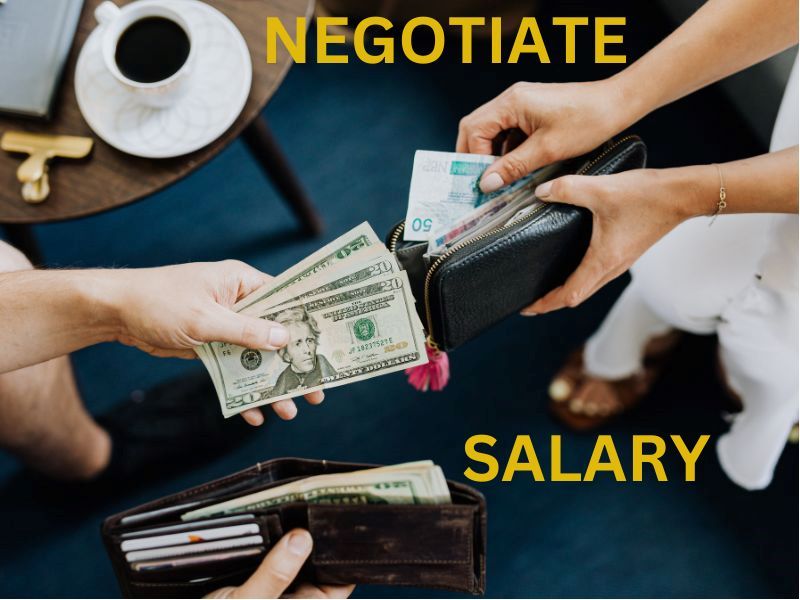EXPECTED SALARY REPLY TO INTERVIEWER
Expected Salary Reply in Job interviews may be stressful, Since this provide you a chance to demonstrate your abilities, expertise, and aptitude for a certain position. The query concerning your expected pay is without a doubt the one that generally generates the most worry among the different questions you’ll be asked during an interview. This seemingly little question holds a lot of weight because it not only affects your future pay but also how valuable and professional you are to the employer. The article will examine methods for answering the expected salary issue with assurance and grace.
UNDERSTANDING IMPORTANCE
It’s crucial to understand the motivations behind the question before you start formulating the ideal response. Employers inquire about your anticipated income to determine various things:
- Budget Alignment: Hiring managers want to make sure that your wage expectations are in line with the available funding for the position inside the organization. If your expectations are too high, they could worry about how you will fit into their budget.
- Value Judgment: Your reply sheds light on how highly you regard your knowledge and experience. It also provides the interviewer with an insight into your knowledge of industry trends and pay scales.
- Negotiation Skills: How you respond to this question will demonstrate your negotiation skills. A thoughtful reaction might show that you are able to stand up for yourself while still acting professionally.
HOME WORK FOR THE TRICKY QUESTION
Researching and being knowledgeable are crucial, just as with any interview preparation. Ensure the following before the interview:
- Rates of Market Research Examine the typical pay scale for positions in your industry, considering your region and level of expertise. Websites like Salary.com, LinkedIn, and Glassdoor can offer insightful information.
- Get information About Company Culture: Learn about the company’s culture, principles, and standing.
- Non-Salary Factors: While some businesses put a higher priority on employee development and benefits than high compensation, others could be more salary-driven.
Calculate Total Compensation: Keep in mind that compensation goes beyond base pay. The total package can be greatly impacted by benefits, bonuses, stock options, and other perks.
EXPECTED SALARY REPLY -CREATING ANSWER
Consider the following strategies while responding to the predicted salary query:
- Postpone the conversation: If at all feasible, attempt to delay the compensation talk until you are more familiar with the demands of the position and the company’s expectations. I’m pretty excited about the chance to work here, you could say. Before we address pay, may we talk a little more about the specifics of the position?
- Specify a range: Offer a wage range based on your study rather than a precise figure. Ensure that the range is broad enough to allow for bargaining while yet being representative of your market value.
- Focus on Value: Emphasize your qualifications, experience, and unique contributions to the position. Describe how your skills match the demands of the position and how you can help the business succeed. Think about these non-salary factors: Mention how the company’s culture, perks, or prospects for growth particularly appeal to you and how this influences your interest in the position as a whole.
- Demonstrate Openness: Make it clear that you’re willing to negotiate and that your main objective is to come to a mutually beneficial agreement.
EXPECTED SALARY REPLY ILLUSTRATIONS
- Range Based Responses: Based on my research and expertise, I feel that a competitive wage for this position would be in the range of $60,000 to $70,000 annually. However, as our interview process develops, I’m willing to go into more detail.
- Value-Centric Response: “I am confident that my qualifications for the role are strong given my background and experience. I would anticipate compensation reflecting my skills in the range of $65,000 to $75,000 given the duties and the value I believe I can provide to the team.
- Response Focused on Culture and Growth: “While pay is essential, I’m equally enthused about the company’s reputation for supporting employee development and innovation. I want a compensation plan that is in accordance with industry norms and takes my expertise into account, but I’m also keen to learn more about the wider advantages and prospects the company has to offer.

COUNTER OFFERS TO EXPECTED SALARY REPLY
Be ready for potential counteroffers after providing your initial response, as well as for additional negotiations. This is how to deal with them:
- Be Ready to Defend: Be prepared to justify your decision based on your research and experience if the interviewer suggests a different range or number.
- Negotiate with Care: If the salary being provided falls short of your expectations, thank the employer for the chance and kindly ask if there is room for negotiation. Make sure to express your enthusiasm for the position and your agreement with the company’s objectives once again.
- Think About the Bigger Picture: Evaluate the total compensation package, which includes benefits, bonuses, stock options, and prospects for advancement, if the salary isn’t negotiable.
To Sum Up
It’s obviously tricky to answer the “expected salary” question in a job interview. You can successfully handle this difficulty by doing extensive study, concentrating on your value, and approaching the dialogue with flexibility. Always keep in mind that your response not only conveys your financial demands, but also your professionalism and negotiating abilities. By striking the appropriate balance, you can create the conditions for a constructive conversation that harmonizes the objectives of the business as well as your own desires. Read further to Improve

The author has served as Director of the Management Institute and Head of the Training and Placement vertical. The author has rich experience in training candidates for job interviews. The author is a certified Interviewing Professional, Psychometric Testing Professional, Instructional Designer, and L&D Professional. He has authored various research papers and received the best research paper award.
